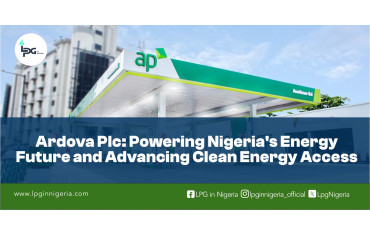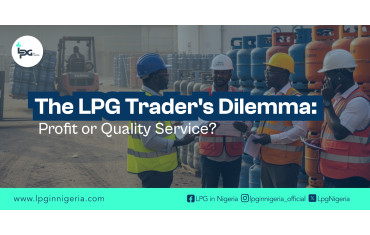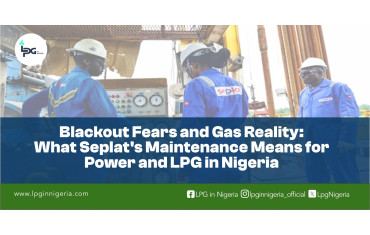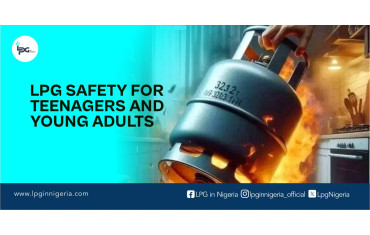- 3547
- 0
Sharing Ideas and Updates on LPG in Nigeria and related information to enable effective collaboration within the LPG Value Chain
LPG Should Be Affordable - NALGAM

Major oil marketers in Nigeria are calling for a comprehensive approach and policy measures to encourage Nigerians to transition to alternative energy sources in response to the escalating energy costs. Of particular concern to these marketers is the urgent need to make Liquefied Petroleum Gas (LPG), commonly known as cooking gas, readily accessible.
This appeal comes amidst growing apprehensions about the surging prices of cooking gas, with reports indicating that a kilogram of cooking gas is now fetching between N1,000 and N1,200 nationwide. The spike in prices is attributed to supply disruptions and shortages in the market.
The upsurge in price is attributed to several factors, including the soaring transportation costs, which are influenced by the rising price of diesel. The weakness of the naira, limited bulk storage capacity, and the scattered distribution of terminals further compound the issue.
Oladapo Olatunbosun, the President of the Nigerian Association of Liquefied Petroleum Gas Marketers (NALGAM), has issued a stern warning that unless the government takes prompt action, the price of a 12.5kg cooking gas cylinder could potentially reach an alarming N18,000. He stressed the imperative need for collective efforts to ensure that this essential product remains affordable for all Nigerians. The situation has been further aggravated by the recent announcement from the government of Niger, suspending all LPG exports until further notice.
This dire situation underscores the urgent need for well-considered policies and collaborative initiatives to make cooking gas more accessible and affordable for the Nigerian population, especially in light of the rising energy costs and supply challenges.
Let’s explore critical aspects related to the topic of rising cooking gas prices in Nigeria.
Impact on Household Budgets: The surge in cooking gas prices has a significant impact on household budgets. Cooking gas is a vital source of energy for many Nigerian families, and the rising cost can strain already tight budgets, leading to potential food and energy insecurity.
Environmental Benefits: Promoting the use of LPG and other clean energy sources can have significant environmental benefits. LPG is a cleaner-burning fuel compared to traditional biomass fuels like firewood and charcoal. Encouraging its use can help reduce deforestation, air pollution, and carbon emissions.
Supply Chain Challenges: The write-up briefly mentions the challenges in the supply chain, such as transportation costs, limited bulk storage, and scattered terminals. A more comprehensive analysis of these supply chain bottlenecks and potential solutions is crucial. Improved infrastructure and investment in storage facilities can enhance the availability and stability of LPG supply.
Government Interventions: It's important to discuss the role of government in addressing the issue. The government can intervene by implementing policies that promote the use of LPG and other clean energy sources, reducing import tariffs on LPG equipment, and ensuring a stable and predictable regulatory environment for marketers. This is not to say that the government isn’t already doing so but maybe it is time to make sure that that these interventions and policies actually work for the masses/general public.
Global Energy Prices: Cooking gas prices are also influenced by global energy trends. Fluctuations in international oil and gas markets, geopolitical factors, and production decisions by major energy-producing countries can have a cascading effect on local prices. Discussing these global dynamics can provide a more comprehensive understanding of the issue.
Consumer Education: As part of the transition to cleaner energy sources, there's a need for consumer education. Many Nigerians may not be aware of the benefits of LPG or how to use it safely. Promoting awareness and safety practices can be crucial in encouraging adoption.
Economic Implications: The rising energy costs, including cooking gas, can have broader economic implications. It can impact the cost of production for businesses, potentially leading to higher prices for goods and services. This, in turn, can affect inflation and overall economic stability.
Long-Term Energy Sustainability: It's vital to consider the long-term sustainability of energy sources in Nigeria. While LPG is a cleaner option, it's essential to assess the country's capacity to produce or import sufficient LPG to meet growing demand sustainably.
Hence, the issue of rising cooking gas prices in Nigeria goes beyond immediate affordability concerns. It touches on economic, environmental, and energy security matters that necessitate a multi-faceted approach involving government policies, industry initiatives, and public awareness campaigns.
Comment down below if you have additional information or want to further explore the topic with us.
Please also make sure to visit our marketplace to connect with industry stakeholders.
















0 Comment.